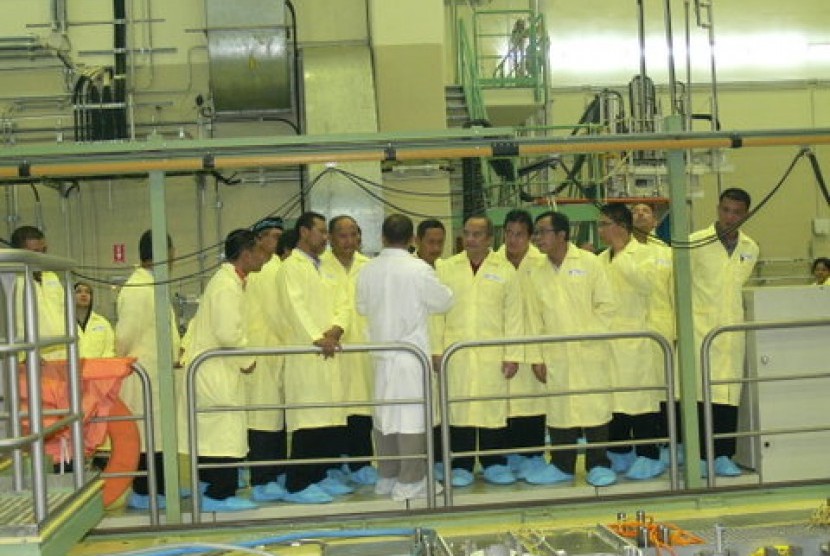REPUBLIKA.CO.ID, JAKARTA -- Food and Agriculture Organization (FAO) and the National Atomic Energy Agency (BATAN) have agreed to apply nuclear technology to support food security.
"An agreement between FAO and BATAN has been given in the signing of a memorandum of understanding (MOU)," FAO Director for Fishery and Aquaculture Resources Indroyono Susilo said here on Friday.
The MOU was signed by BATAN chief Djarot Wisnubroto and FAO Director General Jose Gratiano da Silva in FAO office in Rome earlier this month, Indroyono said.
He said nuclear technology has been applied for food by BATAN, such as in producing high yield paddy seed through nuclear irradiation, which is pest free.
The seeds after being treated with nuclear irradiation have much high productivity turning out up to 10 tons of unhulled rice per hectare, he said.
"Nuclear technology is also used for the preservation of fruits and vegetables and in explorations for water resources underground for irrigation and drinking water," he added.
The potentials have prompted the cooperation between FAO and BATAN especially for food security, he said.
FAO is interested in the program as it is cooperating with 197 FAO member countries in the world to eliminate hunger and malnutrition all over the world, he said.
Currently there are still 850 million of the world population suffering from hunger and malnutrition, he said.
"Application of BATAN nuclear technology is expected to be able to increase world food production and at the same time reduce food waste," he said.
Earlier, Research and Technology Minister Gusti Muhammad Hatta said nuclear technology had been developed in various fields including agriculture, health, energy and animal husbandry.
BATAN has carried out a series of researches to utilize nuclear technology including in the agricultural sector such as in soybean growing.
Currently BATAN has produced eight high yield varieties of soybean which are superior in productivity and quality.
Earlier this month, the Isotope and Radiation Technology Application Center (PATIR) of BATAN launched two high yield soybean varieties called Gamasugen 1 and Gamasugen 2.
PATIR chief Dr Hendig Winarno said the varieties were produced through breeding of plants with gamma ray radiation mutation techniques.
The process of radiation on soybean was held on the first generation followed with the process of selection and refining and finally quality test.
"The superiority of the varieties will be known after the test up to the 10th generation and becoming seeds," Hendig said.
Adaptation tests in 16 locations in different seasons -- dry and rainy seasons --shows that Gamasugen would be ready for harvest in 66-68 days, faster than an average of 73 days for other varieties.
It is also superior in productivity with production averaging 2.4 - 2.6 tons per hectare, resistant to diseases and pest, he said.
"Gamasugen soybean curd and cake have higher content of protein and tastier than curd and cake produced from imported soybean," he said.
He said soybean developed and produced with nuclear technology is safer than imported soybean, which is a result of transgenic development.
"The technique is safe as genetically nothing is changed after the radiation. In addition, there is no genetic residue," he said.
It is different with transgenic soybean to which the gen of other creature is inserted to improve its gen, he said.
Cultivation of transgenic soybean is still banned in Indonesia, he said.
Shortage in supply of soybean, which is widely used as feedstock for soybean curd and cake had created public uproar in the country.
Soybean curd or tofu and soybean cake or tempe are cheap and popular food products among the country lower class.
The government has several times set self sufficiency target in soybean supply in the country but each time its ended in failure.
The country is still heavily dependent on import for soybean.


